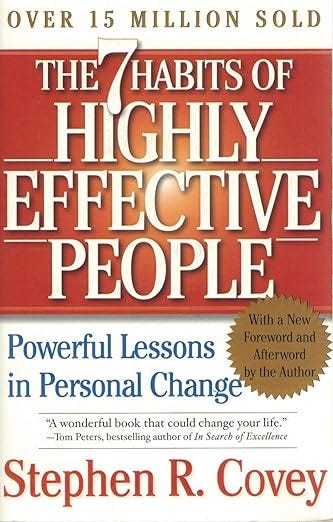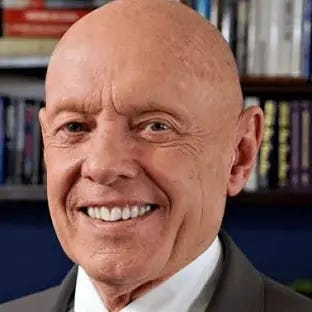Stephen Covey on how to be effective (#72)
The OG of self-help writes on the basis for his best-seller, The 7 Habits of Highly Effective People
You probably know Aesop’s fable, The Goose & The Golden Egg.
But did you take away the key lesson?
The story goes that there was a farmer who found that his new goose was laying eggs made of solid gold. Every morning he would check, and there it was, a new piece of gold. Eventually, he gets greedy and cuts the goose open to get all of the golden eggs at once. But there are none, and the goose is dead.
In his HOF self-help book, The 7 Habits of Highly Effective People: Powerful Lessons in Personal Change, Stephen Covey uses The Goose to explain what he means by “effective” in the first place, and why the lesson from the fable is the key principle behind all positive, personal change.
That lesson is the subject of today’s OGT.
The P/PC Principle
Covey sees The Goose as providing the definition for personal effectiveness.
He talks about it separating the product from the producing asset— i.e. you.
Most people see effectiveness from the golden egg paradigm: the more you produce, the more you do, the more effective you are. But as the story shows, true effectiveness is a function of two things: what is produced (the golden eggs) and the producing asset or capacity to produce (the goose).
Effectiveness lies in the balance—what I call the P/PC Balance. P stands for production of desired results, the golden eggs. PC stands for production capability, the ability or asset that produces the golden eggs.
Covey gives a lot of examples of this happening, whether it’s maintaining a vehicle or machine, investing in your own wellbeing, or even, investing in your marriage.
When two people in a marriage are more concerned about getting the golden eggs, the benefits, than they are in preserving the relationship that makes them possible, they often become insensitive and inconsiderate, neglecting the little kindnesses and courtesies so important to a deep relationship. They begin to use control levers to manipulate each other, to focus on their own needs, to justify their own position and look for evidence to show the wrongness of the other person.
The love, the richness, the softness and spontaneity begin to deteriorate. The goose gets sicker day by day.
He recognizes the benefit, of course, of the golden eggs. He’s not saying don’t reap the rewards. He’s saying to basically schedule a reoccurring reminder to check in with The Goose.
It’s a balance.
To maintain the P/PC Balance, the balance between the golden egg (production) and the health and welfare of the goose (production capability) is often a difficult judgment call.
But I suggest it is the very essence of effectiveness.
The OGT: Don’t forget to invest in the asset
“Generally speaking, investing in yourself is the best thing you can do,” Warren Buffett once said.
Anything that improves your own talents; nobody can tax it or take it away from you. They can run up huge deficits and the dollar can become worth far less. You can have all kinds of things happen. But if you’ve got talent yourself, and you’ve maximized your talent, you’ve got a tremendous asset that can return ten-fold.
This is how I think about the P/PC with respect to the individual. I look at that broadly—physical and mental health, working on emotional intelligence, and, of course, reading. It can also be applied, as Covey does, to your relationships, family, community, and business, for example, investing in employees or customers, rather than demanding harder work, and bigger buys.
The question to ask yourself —whether thinking about your home, your close relationships, your business, or yourself— is this:
Am I investing in The Goose or just taking its golden eggs?





